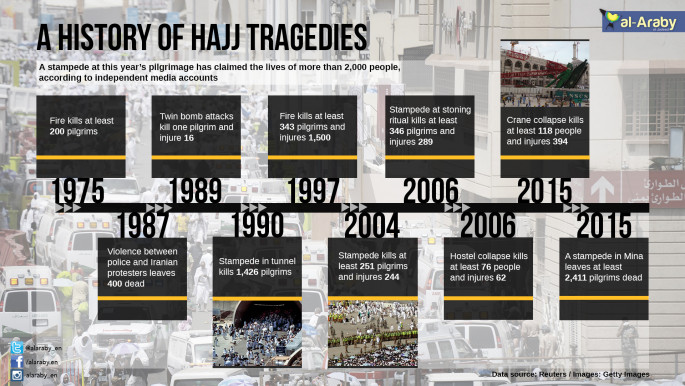Muslim expats in UAE 'will be denied Hajj permits'
Muslim expats living in UAE were advised to apply for permits from their home country, according to an Awfaq spokesman Ahmad al-Mousa.
"The move means that only citizens of the UAE will be issued Hajj permits to perform the pilgrimage this year and in the future," Mousa said in comments to Gulf News on Monday.
The announcement comes following an agreement between Saudi Arabia’s ministry of Hajj and a UAE delegation for Hajj affairs.
Nearly 40,000 people living in the UAE applied to perform the annual pilgrimage this year, exceeding the country's 6,228 Hajj quota.
More than 1.8 million took part in last year's Hajj, marking a ten-year low.
Earlier this year, Saudi Arabia sought to increase the number of pilgrims for 2017 by gradually increasing quotas.
This year will also mark a return for Iranian pilgrims who were absent from Hajj last year after negotiations broke down between Riyadh and Tehran over security and logistics.
In 2015, a deadly stampede claimed the lives of more than 2,300 people performing the annual pilgrimage. Iran says it lost 464 people in the crush outside Mecca.
The pilgrimage is one of the five pillars of Islam and all Muslims who can must perform it at least once in their lives.
The season for the annual pilgrimage is expected to begin on August 30.
 |



![sudan women [getty] sudan women [getty]](/sites/default/files/styles/image_330x185/public/media/images/5019D7F4-52AF-4377-8A05-885D27476479.jpg?h=d1cb525d&itok=tKXV7r-W)